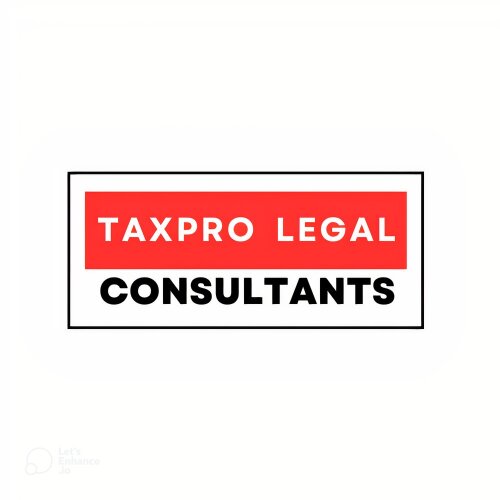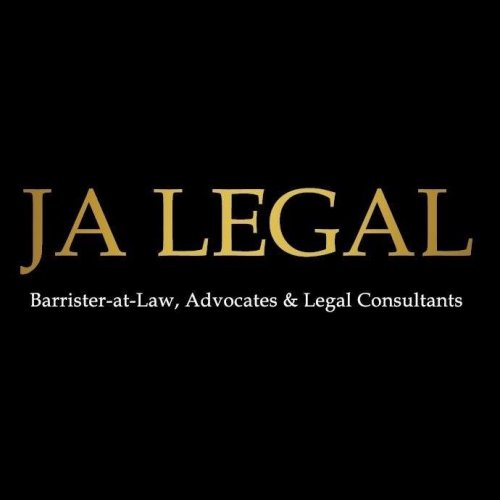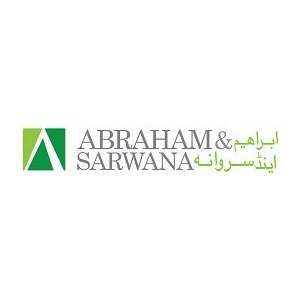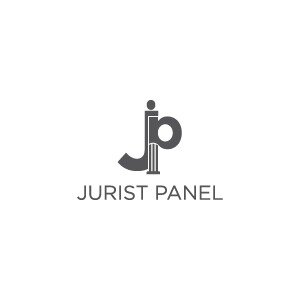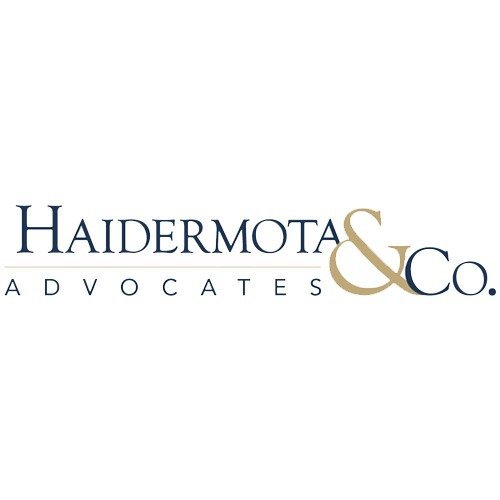Best Tax Increment Financing Lawyers in Karachi
Share your needs with us, get contacted by law firms.
Free. Takes 2 min.
List of the best lawyers in Karachi, Pakistan
About Tax Increment Financing Law in Karachi, Pakistan
Tax Increment Financing (TIF) is a public financing method that is used as a subsidy for redevelopment, infrastructure, and other community-improvement projects. In Karachi, Pakistan, TIF is an innovative way to stimulate urban development and growth by leveraging future gains from taxes to finance current improvements. The revenue generated from increased property values or economic activities due to these improvements helps pay back the initial investment. This financing method supports urban renewal and infrastructure development without burdening the current tax base with new taxes.
Why You May Need a Lawyer
Engaging a lawyer when dealing with Tax Increment Financing in Karachi can be critical for several reasons:
- Complex Regulations: Navigating the intricacies of TIF laws and ensuring compliance can be challenging without legal expertise.
- Contract Negotiations: Lawyers assist in negotiations to ensure favorable terms for development projects or public-private partnerships.
- Legal Disputes: Legal expertise is required in case of any disputes related to TIF agreements or the execution of projects.
- Securing Permits: Lawyers help in obtaining necessary permits and approvals from government bodies.
- Risk Management: Understanding potential liabilities and structuring projects to minimize risk entails legal guidance.
Local Laws Overview
Tax Increment Financing in Karachi is subject to various local legal frameworks and regulatory bodies. Key aspects include:
- Property Tax Regulations: These determine how tax increments are calculated and used for financing urban projects.
- Urban Planning and Development Laws: Guidelines and restrictions on land use and zoning impact TIF implementation.
- Public Finance Management Act: Governs the accounting and transparency requirements for TIF funds.
- Environmental Regulations: Ensure that TIF projects comply with environmental standards to prevent ecological damage.
Frequently Asked Questions
What is the primary purpose of Tax Increment Financing?
TIF aims to encourage economic development and infrastructure improvements in underdeveloped or blighted areas by leveraging future tax revenues.
How does TIF work in Karachi?
TIF districts are established in specific areas where future tax revenue increments are directed to fund urban improvement projects. These projects, in turn, help increase property values and economic activity.
What types of projects can TIF finance?
TIF is typically used for projects like infrastructure improvements, public facilities, affordable housing, and commercial development.
Does TIF increase my current taxes?
No, TIF utilizes future anticipated tax revenue increments, meaning existing tax rates remain unchanged during the financing period.
Who can initiate a TIF project?
Both public authorities and private developers can propose TIF projects, usually in partnership or through public-private collaborations.
What are the legal requirements for setting up a TIF district?
Establishing a TIF district requires the approval of local government bodies, adherence to urban planning regulations, and community consultations.
How long does a typical TIF district last?
A TIF district typically lasts about 20-25 years, depending on the terms established when the district is formed and expected tax increment revenue timelines.
Can TIF funds be used for non-development purposes?
No, TIF funds must be used specifically for the expenses directly related to the approved development projects within the TIF district.
How is the success of a TIF project measured?
The success is evaluated based on economic indicators such as increased property values, job creation, and enhanced infrastructure within the TIF district.
Are there any risks associated with TIF?
Yes, risks include potential shortfalls in projected tax increment revenues, disputes over project impacts, and adverse economic conditions affecting expected outcomes.
Additional Resources
Individuals seeking more information or assistance with Tax Increment Financing in Karachi can consider consulting the following resources:
- Sindh Board of Investment: Offers guidance on investment opportunities and financing options.
- Karachi Development Authority (KDA): Provides details on urban planning regulations and permits.
- Sindh Revenue Board (SRB): Information on tax laws and compliance.
- Local law firms specializing in urban development and public finance.
Next Steps
If you need legal assistance in Tax Increment Financing, consider the following steps:
- Research and identify a reputable lawyer or law firm with experience in TIF and related fields.
- Prepare relevant documents, such as property records, project proposals, and any correspondence with governmental bodies.
- Schedule a consultation to discuss your specific needs and objectives concerning TIF projects.
- Consider obtaining multiple legal opinions to ensure a comprehensive understanding of your options and obligations.
- Engage your chosen legal representative to assist with project negotiations, compliance, and management.
Lawzana helps you find the best lawyers and law firms in Karachi through a curated and pre-screened list of qualified legal professionals. Our platform offers rankings and detailed profiles of attorneys and law firms, allowing you to compare based on practice areas, including Tax Increment Financing, experience, and client feedback.
Each profile includes a description of the firm's areas of practice, client reviews, team members and partners, year of establishment, spoken languages, office locations, contact information, social media presence, and any published articles or resources. Most firms on our platform speak English and are experienced in both local and international legal matters.
Get a quote from top-rated law firms in Karachi, Pakistan — quickly, securely, and without unnecessary hassle.
Disclaimer:
The information provided on this page is for general informational purposes only and does not constitute legal advice. While we strive to ensure the accuracy and relevance of the content, legal information may change over time, and interpretations of the law can vary. You should always consult with a qualified legal professional for advice specific to your situation.
We disclaim all liability for actions taken or not taken based on the content of this page. If you believe any information is incorrect or outdated, please contact us, and we will review and update it where appropriate.




